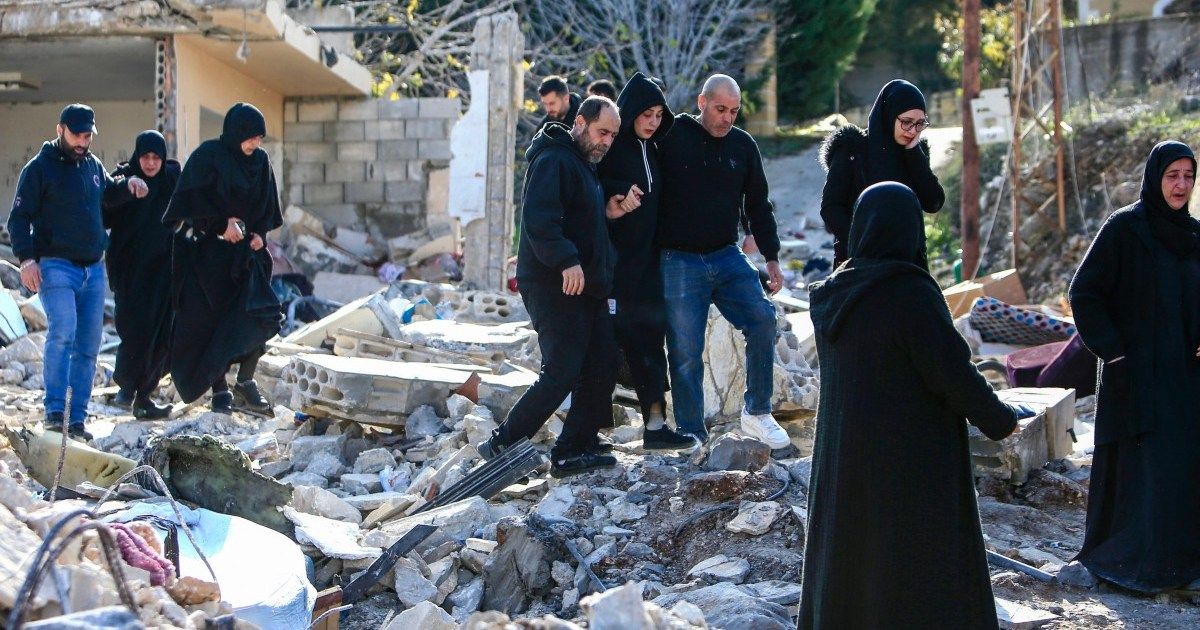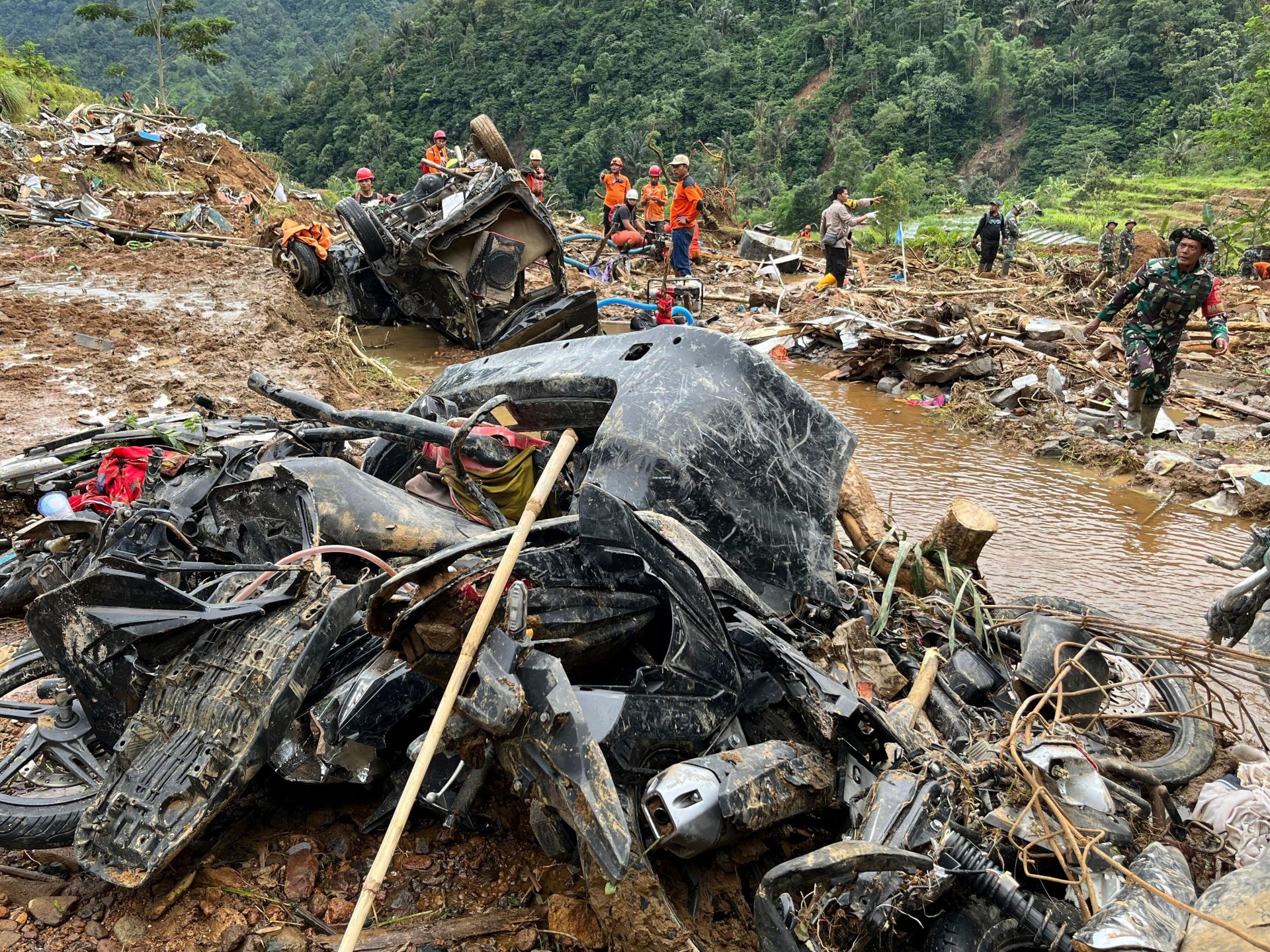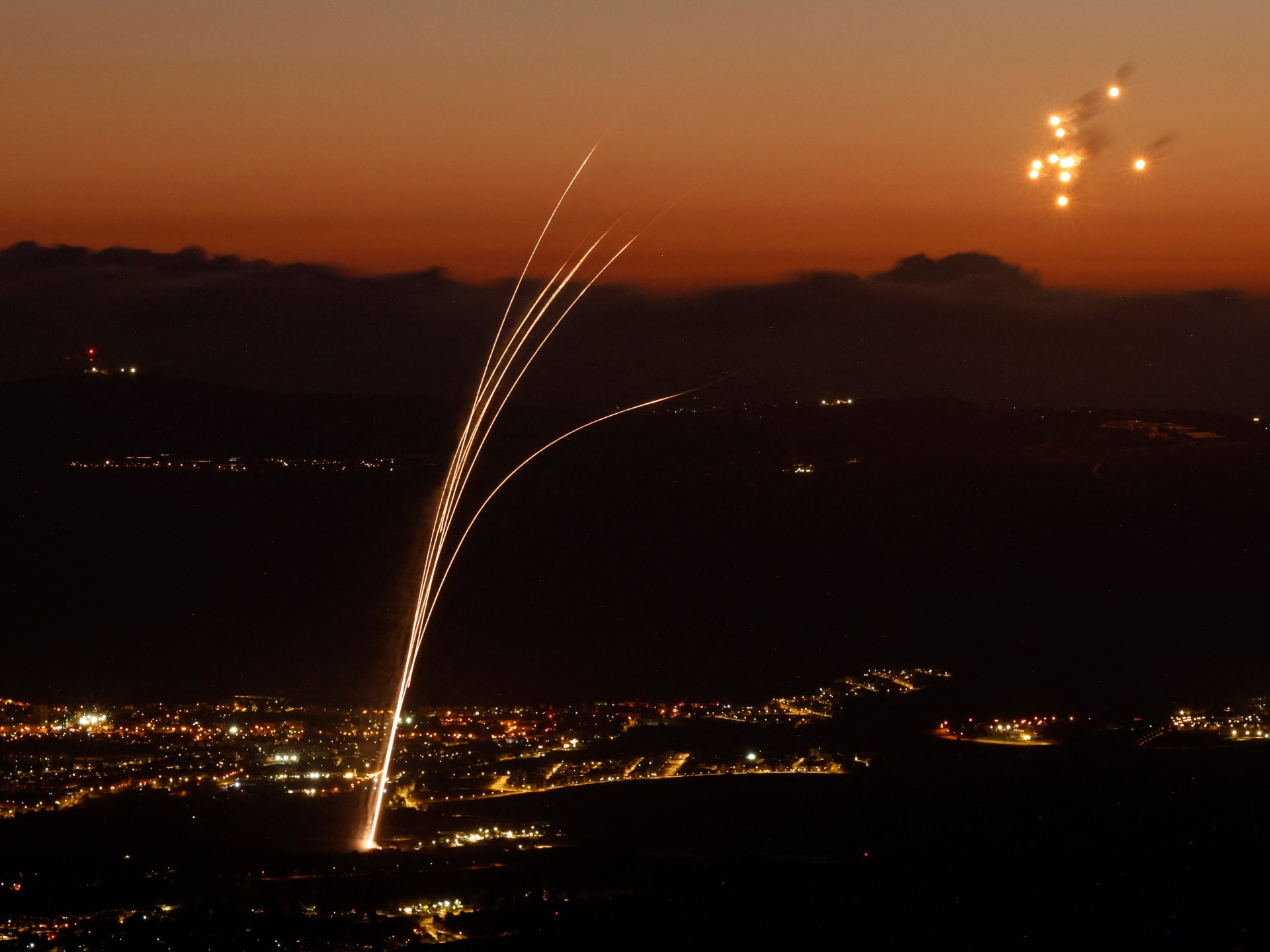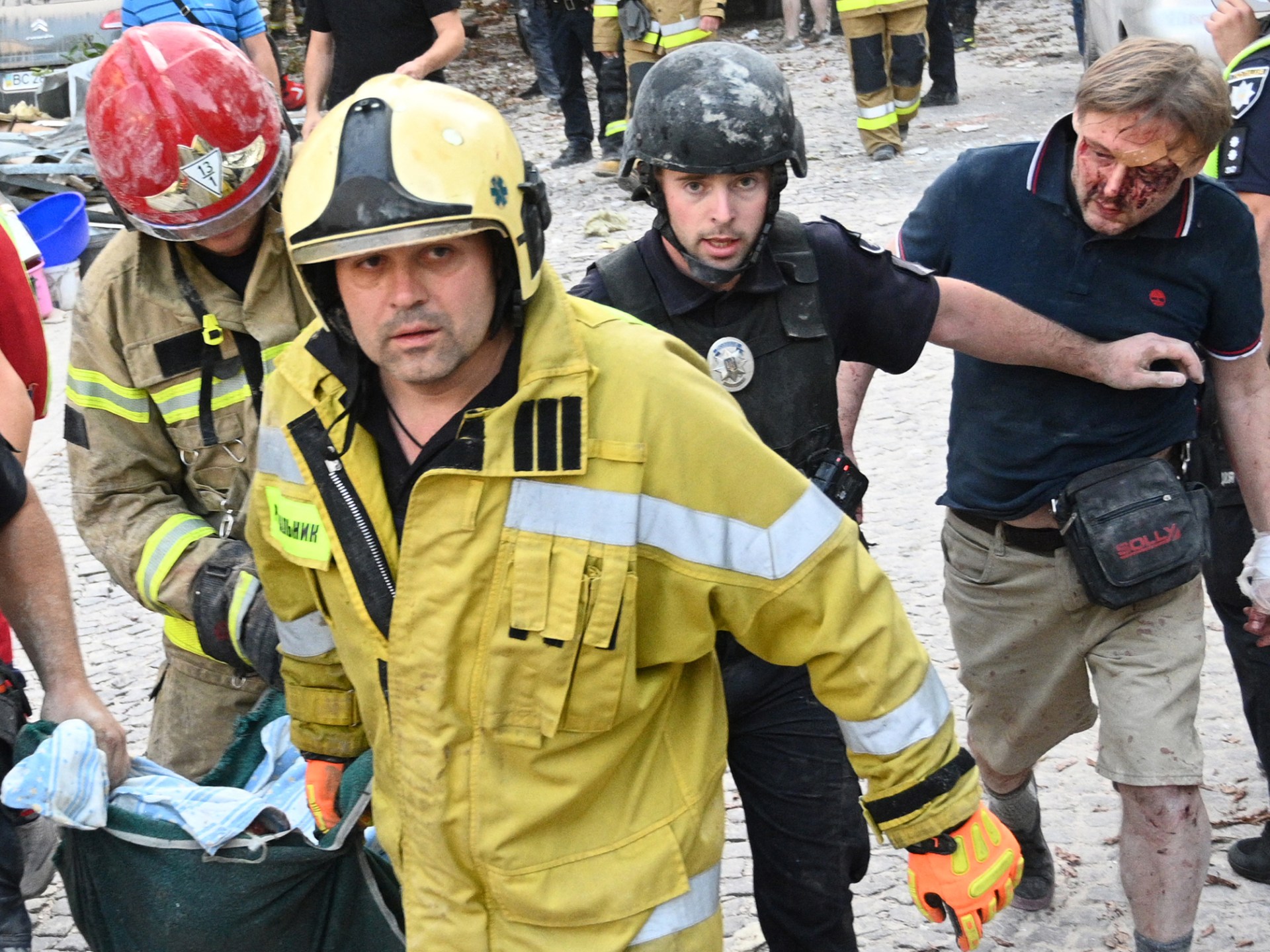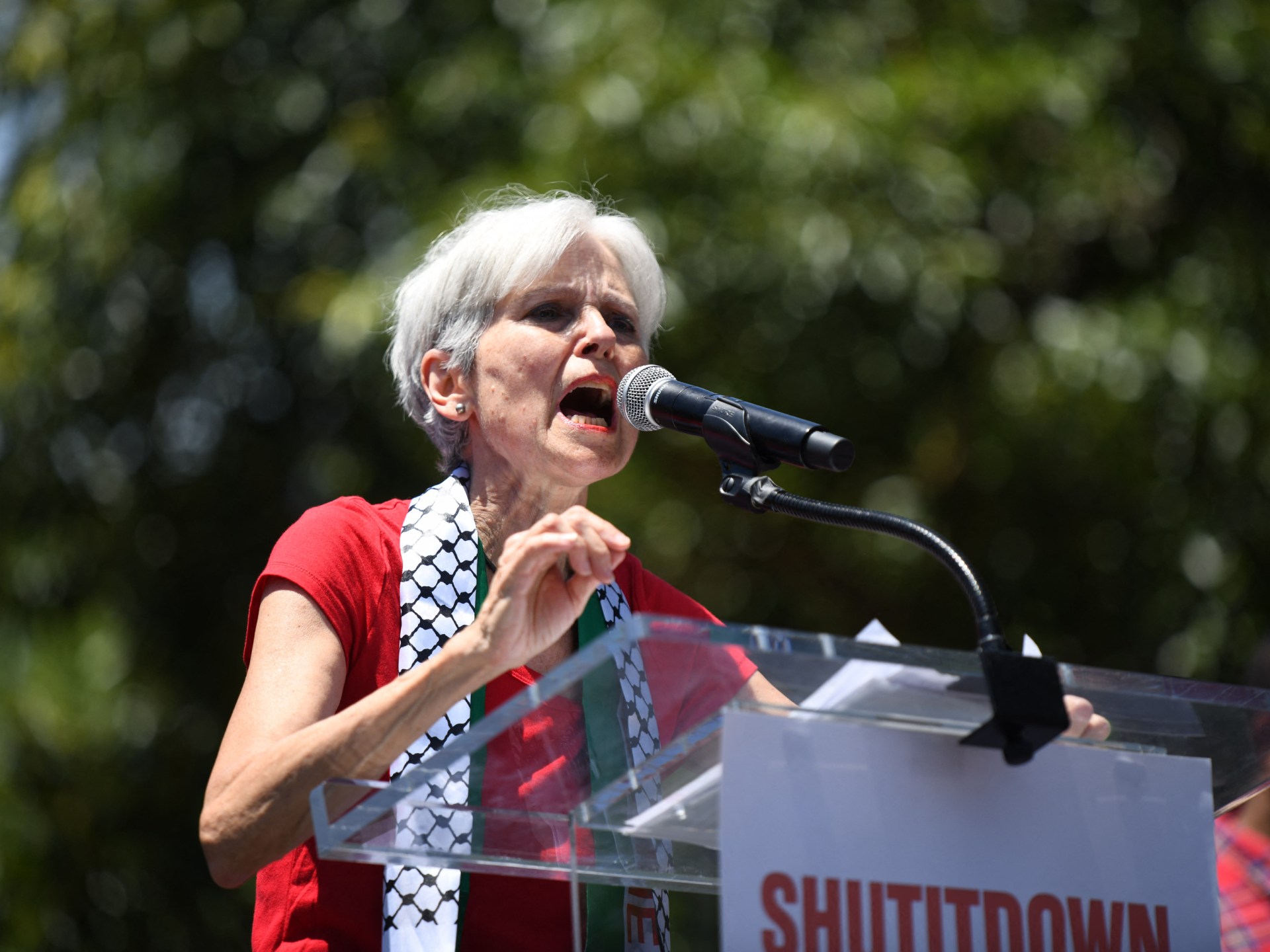The attacks on Hezbollah’s military infrastructure follow the assassination of the Hamas leader in Beirut, for which Israel has not claimed responsibility.
Several Hezbollah members were killed in Israeli strikes in southern Lebanon in one of the deadliest days for the Iran-aligned group, as cross-border fighting has intensified since the start of the Gaza war in October.
At least nine members of the group were killed in separate attacks on Wednesday, the Reuters news agency reported.
The Israeli military released nightly videos of the attacks, including those against Hezbollah military infrastructure and “observation devices” in the village of Yaroun in the Nabatieh governorate in southern Lebanon, located across the border from the Israeli settlements of Yir’on and Avivim in northern Israel.
The grainy images appear to show Israeli bombs hitting and destroying several residential buildings near other civilian buildings.
“Launches” were also detected crossing Lebanese territory and landing in open areas in the Goren settlement area of northern Israel, the Israeli military said.
Since October 8, continued clashes on the border between the Israeli army and Hezbollah have led to the deaths of dozens of Lebanese civilians and more than 140 Hezbollah members. Israel and armed groups in southern Lebanon, about 200 kilometers (124 miles) from the Gaza Strip, particularly Hezbollah, have engaged in frequent back-and-forth exchanges across the Israel-Lebanon border, patrolled by the United Nations.
Fears of escalation
The strikes followed the killing of Saleh al-Arouri, deputy leader of Hamas, in a drone strike in the Lebanese capital, Beirut, on Tuesday.
Hezbollah chief Sayyed Hassan Nasrallah said in a televised speech on Wednesday that al-Arouri’s killing was “a major and dangerous crime about which we cannot remain silent.” Hezbollah supports the Palestinian armed group.
Al-Arouri’s funeral will be held in Beirut later on Thursday.
Al Jazeera’s Imran Khan, reporting from Beirut on Thursday, said language coming from both Israel and Hezbollah suggests neither side is willing to back down.
“With the murder of al-Arouri, Hezbollah will have to respond and will do so at a time and place of its choosing. But everyone is very concerned about what that response might look like… and what the Israeli retaliation will be,” he said.
Nasrallah blamed Israel for the attack and offered his condolences to Hamas for what he called “blatant Israeli aggression.”
Israel has not claimed responsibility for the attack that killed al-Arouri in the southern Beirut suburb of Dahiyeh, a Hezbollah stronghold. But there is growing concern that Israel’s war in Gaza is escalating across the region.
The United Nations called for restraint, saying a further increase in hostilities could be devastating for both Israel and Lebanon.
French President Emmanuel Macron, in a phone call with Israeli war cabinet member Benny Gantz, urged Israel to “avoid any attitude of escalation, particularly in Lebanon.”
Israeli Prime Minister Benjamin Netanyahu previously warned that Beirut would become “like Gaza” if Hezbollah launched an all-out war.

